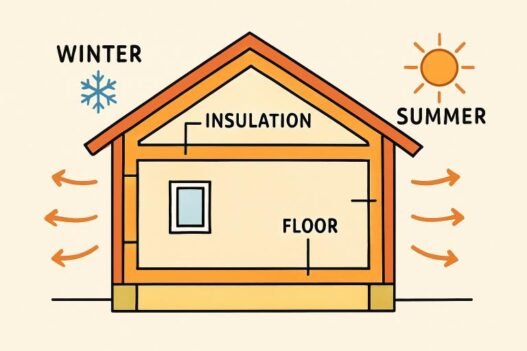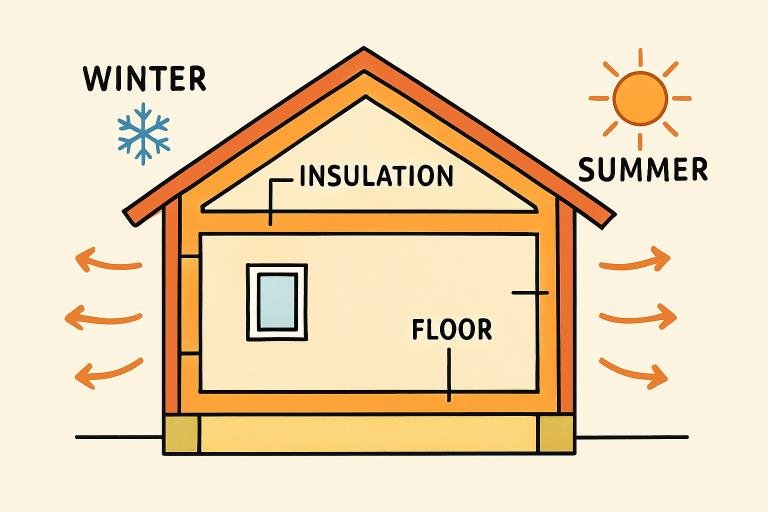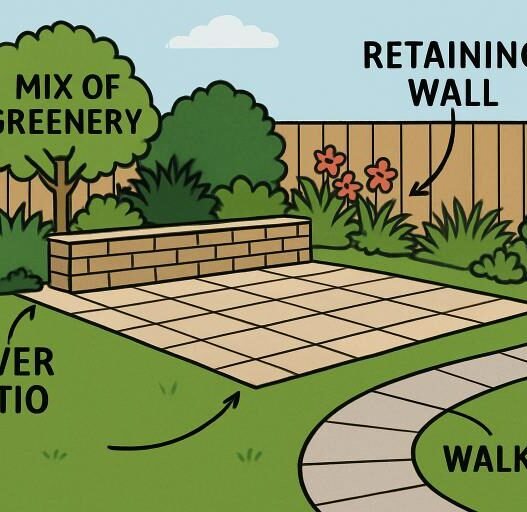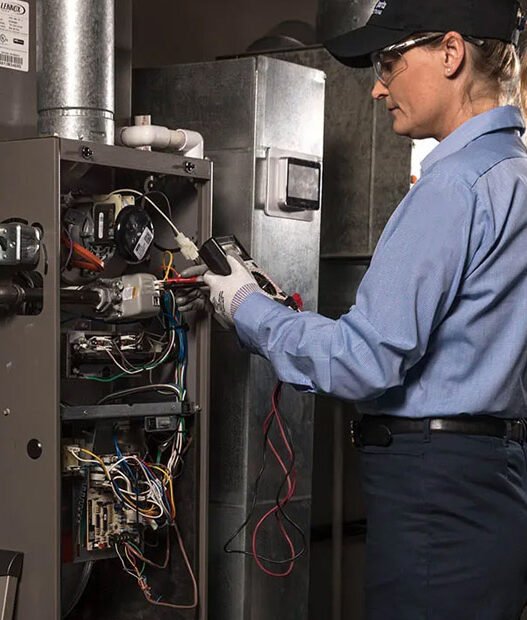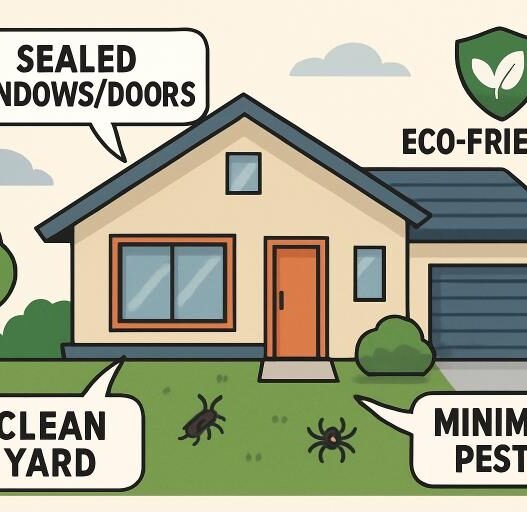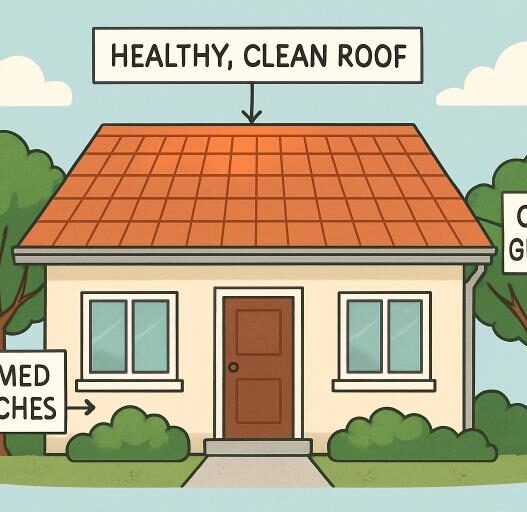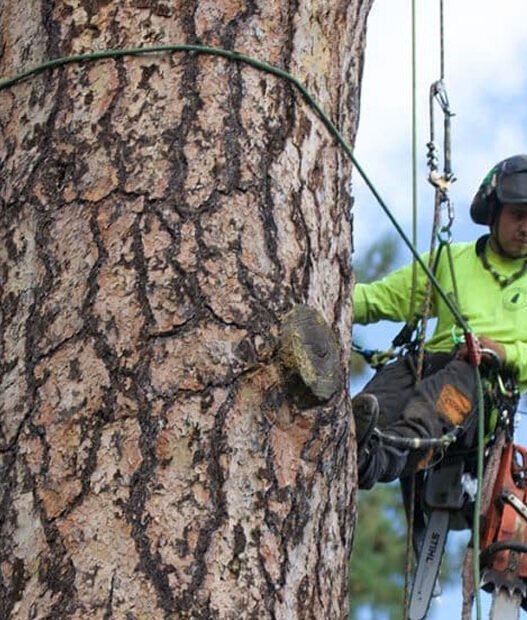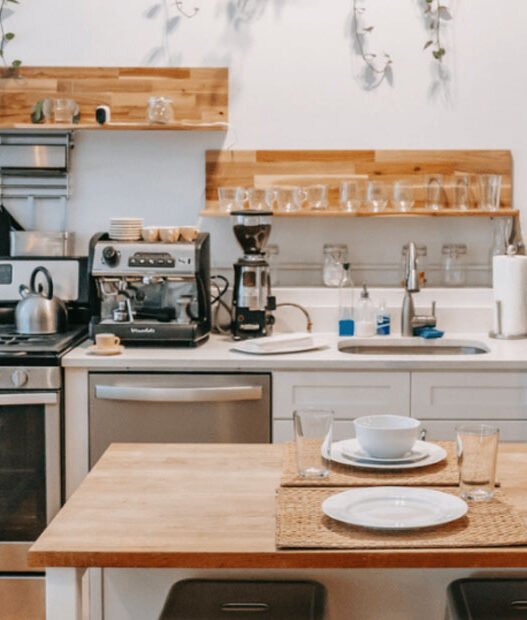Key Takeaways
- Modern insulation is crucial for maintaining comfort, enhancing efficiency, and achieving savings.
- Advanced materials, such as spray foam, aerogel, and vacuum panels, provide superior results compared to traditional options.
- Upgraded insulation lowers energy costs, supports healthier indoor air, and reduces environmental impact.
- Choosing the proper insulation is crucial and depends on factors such as climate, home design, and budget.
Understanding the Importance of Proper Insulation
Insulation forms the backbone of an energy-efficient, comfortable, and resilient home. Acting as a regulating barrier, modern insulation helps to maintain your preferred indoor temperature throughout the seasons. Properly installed insulation keeps warm air in during winter and heat out in the summer, significantly reducing the workload on HVAC systems and leading to substantial energy savings.
If you’re considering a home upgrade, working with a trusted professional, such as Insulation Co., ensures you receive expert installation and advice on the best insulation for your needs. Specialized experts can identify problem areas, recommend the ideal materials, and deliver energy solutions that maximize both comfort and savings for years to come.
Beyond just cost efficiency, adequate insulation eliminates cold and hot spots throughout your living space, making your home far more comfortable. Drafts are minimized, rooms maintain a consistent temperature, and you’re less likely to contend with moisture-related issues like condensation or mold. These changes aren’t just convenient—they directly contribute to a healthier, cozier environment for your family. Energy-efficient upgrades, such as comprehensive insulation, are among the most recommended home improvements for boosting property value and enjoying long-term returns. As more homeowners seek sustainable living options, the demand for advanced insulation technology continues to rise.
Types of Modern Insulation Materials
The evolution of building science has introduced advanced insulation materials that outperform traditional fiberglass batts. Here are three leading solutions:
- Spray Foam Insulation: Expanding upon application, spray foam fills every gap and void in walls, attics, and crawl spaces. The resulting airtight seal dramatically limits heat transfer and can even bolster structural strength. Its effectiveness at eliminating drafts makes it a top pick for both new builds and retrofits.
- Aerogel Insulation: Sometimes referred to as “frozen smoke,” aerogel is ultra-light and renowned for its remarkable insulating properties. Although more costly and typically used in specialized contexts, aerogel provides best-in-class performance where space constraints or extreme conditions demand superior protection.
- Vacuum Insulation Panels (VIPs): Composed of a rigid core enclosed in a vacuum-sealed envelope, VIPs are incredibly thin yet highly effective. Their compactness makes them ideal for applications where space is at a premium, such as retrofitting older walls or integrating into high-performance windows and doors.
These innovative solutions offer flexibility to meet unique architectural requirements while delivering exceptional results in terms of energy savings, comfort, and longevity.
Benefits of Upgrading Home Insulation
- Energy Efficiency and Cost Savings: Modern insulation can reduce energy use by up to 20%, resulting in significant reductions in heating and cooling expenses, according to Time Magazine.
- Year-Round Comfort: Consistent temperatures mean less reliance on space heaters and fans, as insulation eliminates uncomfortable drafts and maintains an even climate in every room.
- Improved Indoor Air Quality: By forming a barrier against outdoor pollutants, allergens, and moisture, high-performance insulation actively maintains a healthier indoor environment.
- Noise Reduction: Dense and air-sealing insulation options can absorb sound transfer, making your home quieter and more peaceful.
- Increased Property Value: Buyers consistently favor homes that are efficient and “move-in ready,” with energy-efficient upgrades, such as insulation, ranking high on their wish lists.
Environmental Effect of Insulation
Energy efficiency doesn’t just benefit your wallet; it’s also a fundamental part of environmental stewardship. Better insulation reduces the carbon footprint of your home by lowering the amount of energy required for heating and cooling. According to the U.S. Department of Energy, proper insulation is one of the most effective ways to improve a home’s energy efficiency while promoting environmental responsibility. Many modern materials utilize recycled content or are manufactured using low-impact processes, which further shrinks the ecological impact. Eco-conscious homeowners often select sustainable products that offer both performance and peace of mind, reinforcing the global push for greener building practices.
Choosing the Right Insulation for Your Home
No two homes are the same, and several factors must be considered when selecting the best insulation. Climate has a direct impact on the type and amount of insulation required—homes in colder zones need higher R-values than those in milder regions. Home layout, existing wall cavity depth, and project budget also play key roles in the final decision. Engaging with a knowledgeable team ensures you select cost-effective solutions optimized for your unique structure and location. Whether you’re renovating, building, or simply aiming to reduce utility costs, expert input streamlines the selection process for maximum results.
Conclusion
Investing in modern insulation is one of the smartest choices for homeowners seeking to enhance comfort, reduce energy bills, and promote sustainable living. Thanks to a range of advanced solutions, it’s easier than ever to upgrade your space and enjoy lasting benefits. By prioritizing high-quality insulation and expert installation, you’ll be well-positioned for a future that’s not just warmer or cooler, but also healthier and more efficient.


